SUMMARY
This is AI generated summarization, which may have errors. For context, always refer to the full article.
In the twilight of Rodrigo Duterte’s presidency, I look back and make a list of at least five of the bad things he has done to our democracy and to our country.
I leave out his single most devastating legacy—shattering the rule of law—since this is a theme that I have often written about. It is the glue that binds our bedrock values.
As the President of the European Commission, Ursula vonder Leyen, recently said in a speech on the rule of law crisis in Poland, “Rule of law is essential for the protection of the values… [of] democracy, freedom, equality and respect for human rights.”
It goes without saying that the Duterte presidency equals an emaciated rule of law.
Here goes my list of troubles that the President has unleashed on us, setting us back in our march towards being the most vibrant democracy in Southeast Asia. (This honor now belongs to Indonesia.)
1. Duterte has thrown facts into the bin and set the tone for state-sponsored disinformation.
As soon as Duterte became president in 2016, something changed around us: It became part of the culture in Malacañang to tell lies and distort facts. The first big falsehood was the number of drug users in the country. That was the original sin.
Duterte said there were 4 million of them, a figure he lifted from thin air, to justify his brutal war on drugs. The Dangerous Drugs Board (DDB), in its 2015-2016 scientific survey, said there were 1.8 million drug users. After Benjamin Reyes, the DDB chair, made this public, Duterte fired him.
This is one memorable lie because, early on, it showed that facts were like particles of sand that passed through Duterte’s fingers; he had no grip on them.
I will cite a more recent example: In 2020, as the pandemic raged, Duterte claimed that he warned us about the coronavirus threat “at the start.”
Of course, this is false. In fact, he downplayed the threat, saying that the virus “will just die a natural death,” this after the first coronavirus death outside China happened in the Philippines.
In spewing out falsehoods, Duterte set the tone for disinformation to thrive, driven by state agencies, including the police and the military, and his allies. Their targets have been the opposition, perceived enemies, critics and independent media.
When the country’s leader cannot tell the difference between fact and fiction and encourages falsehoods, we lose our moorings and find ourselves adrift in a sea of lies.
2. In shaping policy on China, Duterte relied on personal channels, bypassing the professional diplomats.
Nowhere is this more evident than in the Pharmally corruption scandal which brought the role of Duterte’s friend, Michael Yang, to light. Pharmally, which is linked to Yang, was a favored supplier of pandemic supplies, ending up with at least P8 billion worth of contracts.
The President recently admitted that “it was Yang whom I requested to lay the ground, do the legwork of my going to China and getting into a new deal, new relations because, in my foreign policy, I would be neutral so I can be flexible.”
Instead of tapping the Philippine embassy in Beijing, Duterte chose someone unaccountable, his former economic adviser—who is a Chinese citizen—as emissary to the Chinese Communist Party leaders. Duterte revealed that Yang was with the entourage of Chinese Premier Li Keqiang during his visit to the Philippines in 2017 and was close to Zhao Jianhua, the former Chinese ambassador to Manila.
3. Duterte has elevated incoherence to the national stage.
I can imagine how difficult it is for the reporters and editors to make sense of the President’s statements, put coherence in disjointed words and zigzagging thoughts. What comes out of his mouth reflects a thought process that is scattershot.
In his annual State of the Nation (SONA) addresses, it was routine to disregard parts of the prepared speech and talk like there was no tomorrow, as if his audience had all the time in the world to listen to him. He had a terribly inflated sense of himself that he didn’t know his mind lurched from one subject to another, losing the thin thread on which his words hung.
Even President Joseph Estrada spoke to us in complete sentences, for the most part, and his thoughts were connected to each other.
For the past five-and-a-half years, we’ve been deprived of lucid prose, elegant language and speeches that inspire.
4. He has shown that taking a giant leap from mayor to president results in bad governance.
He was the first mayor to become president and we’re poorer for it.
The most glaring example is the pandemic response. In Nikkei Asia’s pandemic recovery rankings for September, the Philippines ranked lowest. This index evaluated 121 countries worldwide in terms of infection management, vaccine rollout, and social mobility.
Also in September, the Philippines fell to the bottom of Bloomberg’s COVID Resilience Ranking, making it the worst place to be during the pandemic among 53 countries. According to Bloomberg, the ranking is based on 12 data points related to virus containment, the economy and opening up.
And, of course, there’s the corruption in the purchase of pandemic supplies.
Moreover, Duterte’s victory in 2016 has opened the floodgates for mayors to run for president.
5. He created a co-president and blurred the lines between the Office of the President and the Senate.
In an earlier newsletter, I argued that Christopher “Bong” Go evolved from aide to co-president [please link to Bong Go, co-president newsletter]. He enjoyedunfettered access to Duterte and was given a lot of power when he was in Malacañang as special assistant to the President.
Through the years, even when he became senator in 2019, Go controlled the traffic of information and messages that reached the President. He became Duterte’s extension in the Senate.
In essence, the co-president was the replacement of a visible and active First Lady, a partner in running the country.
Add a comment
How does this make you feel?
![[WATCH] Bamban POGO scandal: There’s a bigger fish than Alice Guo](https://www.rappler.com/tachyon/2024/07/inside-track-tcard-bamban-pogo.jpg?resize=257%2C257&crop=435px%2C0px%2C1080px%2C1080px)
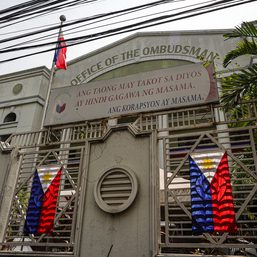


![[OPINION] What kind of citizens are we?](https://www.rappler.com/tachyon/2024/07/tl-what-kind-of-citizen-are-we.jpg?resize=257%2C257&crop=333px%2C0px%2C1080px%2C1080px)
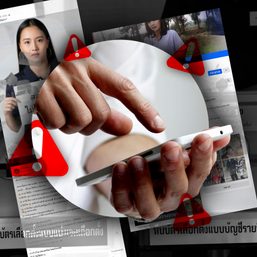
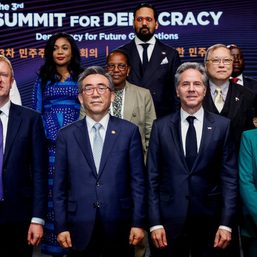
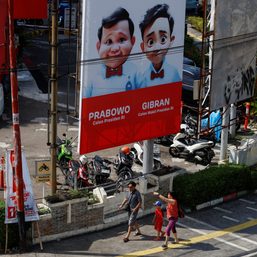
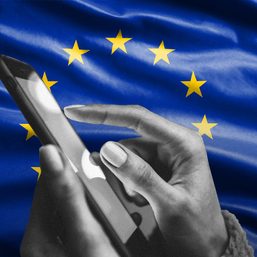
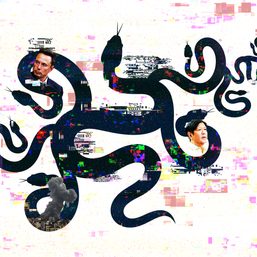
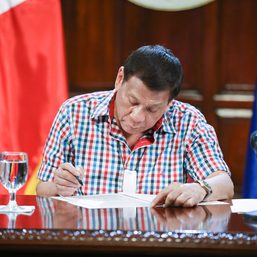
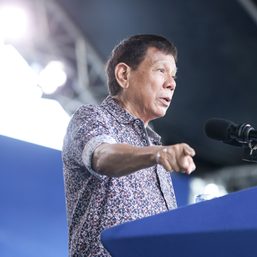
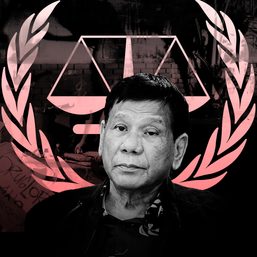
![[PODCAST] Seat of Power: Jess Dureza on how Duterte leads the Cabinet](https://www.rappler.com/tachyon/2021/07/seat-of-power-podcast-artwork-final-14.jpg?resize=257%2C257&crop_strategy=attention)



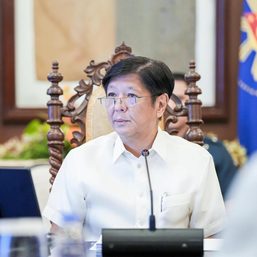
![[WATCH] #TheLeaderIWant: Filipino voters sound off on community issues a year before 2025 elections](https://www.rappler.com/tachyon/2024/05/filipino-voters-sound-off-on-community-issues-1.jpg?resize=257%2C257&crop=276px%2C0px%2C720px%2C720px)

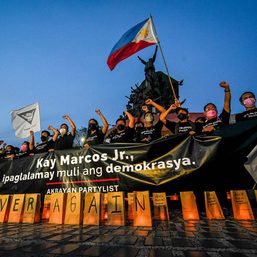
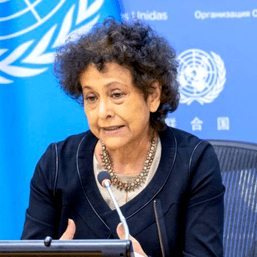
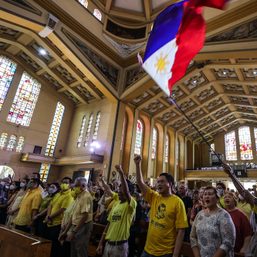
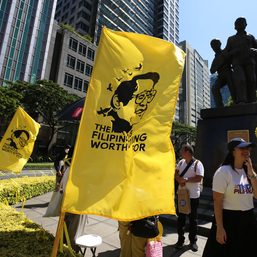
![[OPINION] Rodrigo Duterte and his ‘unconditional love’ for China](https://www.rappler.com/tachyon/2024/04/rodrigo-duterte-xi-jinping-august-2019.jpeg?resize=257%2C257&crop=91px%2C0px%2C900px%2C900px)



![[The Slingshot] Lito Patay’s 4 hours and 38 minutes of infamy](https://www.rappler.com/tachyon/2024/07/Lito-Patay-4-hours-infamy-July-19-2024.jpg?resize=257%2C257&crop=233px%2C0px%2C720px%2C720px)
There are no comments yet. Add your comment to start the conversation.